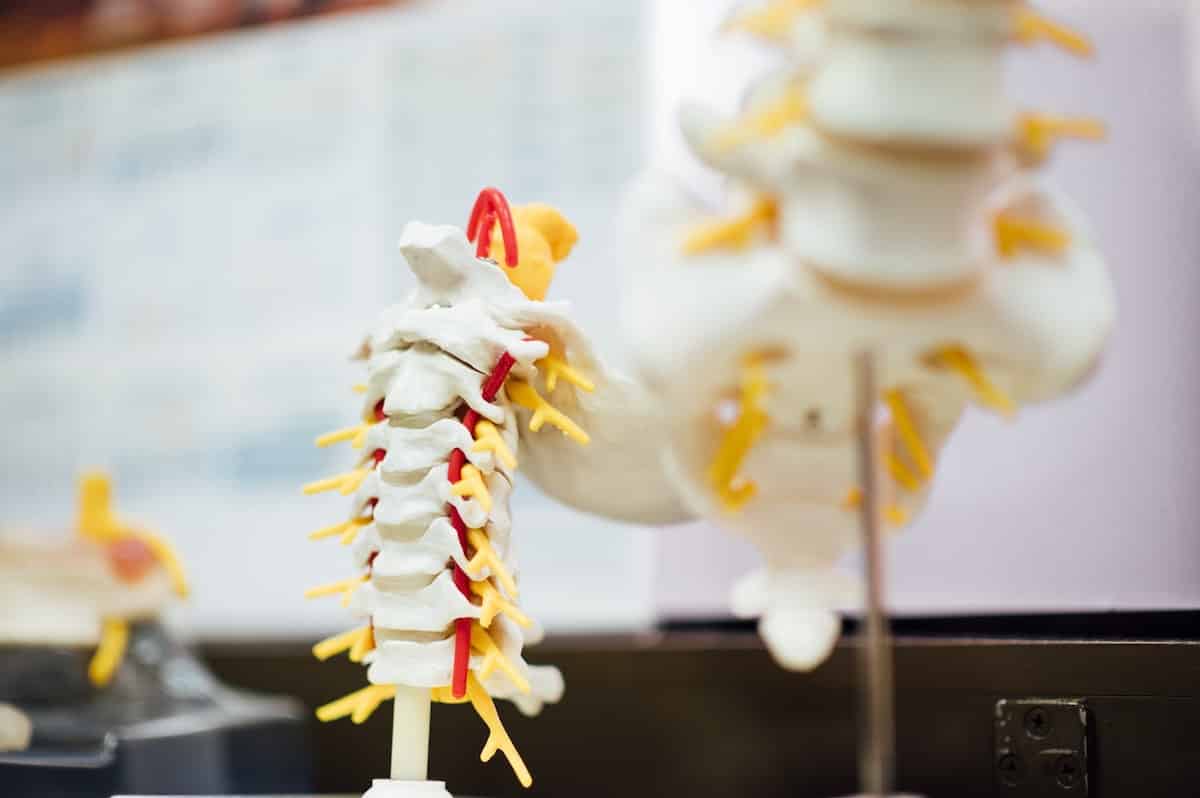Table of Contents
Obesity is known to be a risk factor for a host of health conditions, namely cardiovascular disease and diabetes. However, did you know that obesity can also compromise the health of your spine?
A range of studies has illustrated the link between body weight and spinal diseases. Below, we’ll explore the details of obesity and spinal health, as well as common treatments for patients struggling with obesity and chronic back pain.
Obesity and Spinal Health
First, let’s clarify the connection between obesity and spinal conditions.
The spine consists of vertically-stacked bones, called vertebrae, and intervertebral discs. These discs cushion the vertebrae and absorb impact to prevent damage to the spinal structures.
Thankfully, the spine is configured to handle motion and a degree of impact from day-to-day activities. However, every pound of excess weight puts added strain on the spine. So, for patients who are overweight or obese, the spine is put under significant stress with every step.

Over time, this added strain takes a toll on the spine. Due to increased wear and tear, overweight and obese patients are more susceptible to spinal degeneration, which can lead to a range of spinal conditions.
Common Spinal Disorders Among Obese Patients
Obesity can increase your risk of developing spinal disorders including:
Degenerative Disc Disease
Degenerative disc disease encompasses symptoms triggered by the degeneration of a spinal disc. In addition to back or neck pain, degenerative disc disease can involve numbness, weakness, tingling, and radiating pain, which are symptoms of nerve compression.
In most cases, degenerative disc disease involves mild to moderate chronic pain with occasional episodes of severe pain.
Degenerative disc disease progresses over time and results from age-related wear and tear on the spine. However, being overweight or obese can speed up spinal degeneration, leading to the onset of this condition at a younger age. Obesity can also exacerbate an existing case of degenerative disc disease.
Herniated Disc
Being overweight or obese has been shown to significantly raise the probability of developing lumbar disc herniation. When an intervertebral disc is herniated, it means that the jelly-like disc interior has protruded through a crack or tear in the disc exterior.
A herniated disc can develop as a sports injury or as a traumatic injury from a car accident, for example. However, the most common cause of a herniated disc is age-related spinal degeneration.
As you get older, the intervertebral discs become drier and weaker, which makes them more susceptible to damage. Obesity can accelerate the process of disc degeneration, which is likely why disc herniation is a prevalent concern among overweight and obese individuals.
Spondylolisthesis
Spondylolisthesis is a spinal condition that develops when one of the vertebrae becomes misaligned and slips onto the vertebra beneath it. The misaligned vertebra can push on nearby nerves, leading to back pain, numbness, weakness, and tingling.
Similar to a herniated disc, the most common cause of spondylolisthesis is age-related spinal degeneration. Specifically, the breakdown of the spinal cartilage and bone from osteoarthritis commonly leads to spondylolisthesis.
Since obesity increases the amount of pressure on the joints, including the facet joints of the spine, obese patients are more susceptible to osteoarthritis.
Spinal Stenosis
Spinal stenosis involves the abnormal narrowing of the spinal canal. It leads to symptoms including back pain, difficulty walking, and neurological symptoms.
Like all of the conditions listed above, spinal stenosis is most commonly caused by spinal degeneration with age. Obesity increases the risk of developing this condition due to increased stress on the spine.
Treating Spinal Conditions in Obese Patients
In discussing treatment options for obese patients with spinal conditions, it’s essential to note the benefits of weight loss. Even moderate weight loss can have a major, positive impact on overweight and obese patients’ pain levels, mobility, and quality of life. Each lost pound of excess weight translates to less strain on the spine with every movement.

A Non-Surgical Treatment Approach
In addition to weight loss, obese patients suffering from spinal conditions can benefit from non-surgical treatments including:
- Physical therapy, which can offset muscle atrophy, increase muscle strength, and improve balance
- Chiropractic care, which can improve spinal alignment and may support weight loss efforts
- Medications and steroid injections, which can help manage pain and inflammation from spinal disorders
- Lifestyle modifications, which can help patients avoid activities that may cause pain flare-ups
For most patients, non-surgical treatments are sufficient to resolve symptoms of spinal conditions.
A Surgical Treatment Approach
If non-surgical treatments fail to improve spinal conditions after several months, physicians may recommend surgery. Obese patients have been found to benefit from spinal surgery for conditions like lumbar spinal stenosis as much as patients of normal weight.
Surgery for the spinal conditions discussed earlier typically involves spinal decompression and spinal fusion. Spinal decompression involves alleviating nerve compression, typically by removing some of the tissue that’s pressing on the spinal nerves. Spinal fusion prevents instability after this procedure.
In spinal fusion, the surgeon positions bone graft material in between the targeted vertebrae. These vertebrae will meld into one bone over time.
Alternatives to Spinal Fusion For Obese Patients
While spinal fusion prevents instability after decompression, it also eliminates motion at the fused segment. This limits patients’ activities after spinal surgery, which can be detrimental to obese patients’ ability to stay active and lose weight.
An alternative to spinal fusion, such as a non-fusion spine device, is an excellent alternative to spinal fusion. It reduces back surgery recovery time while preserving patients’ motion after decompression laminectomy, slipped disc surgery, and related procedures.
If you’re suffering from chronic back pain and other symptoms of a spinal condition, consult a spine specialist. There are several different treatment routes that can help you attain pain relief, regardless of your weight.
Photo by CHUTTERSNAP on Unsplash


